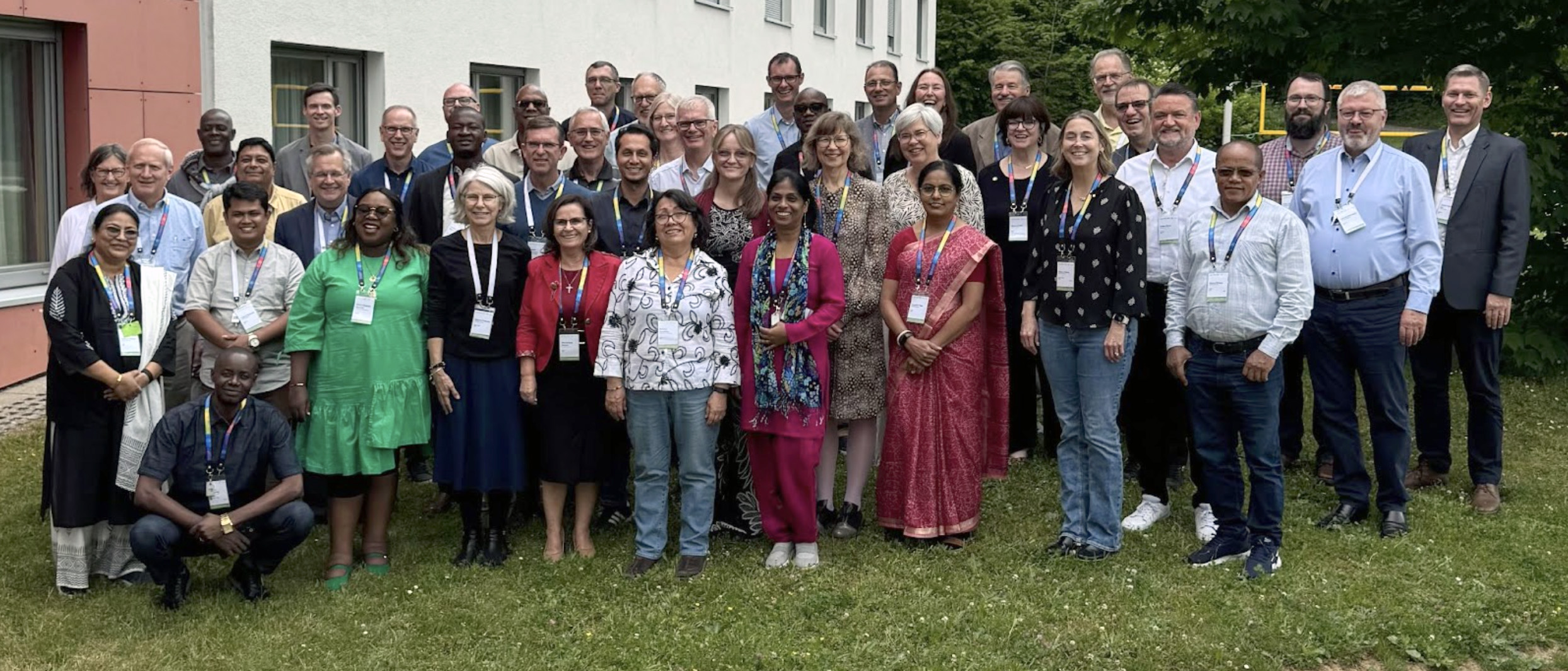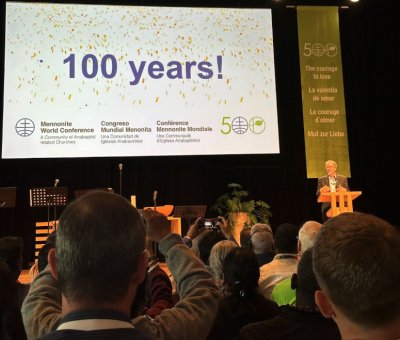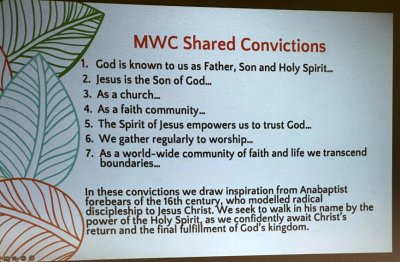Stretching for solidarity in global Anabaptist education

In a time when the role of education is being contested, and church bodies are experiencing divisions, something new is coming together.

Last week I had the privilege to participate in the 100th anniversary celebration of the Mennonite World Conference (MWC) in Schwäbisch Gmünd, Germany. This 100th anniversary coincided with the 500th anniversary of Anabaptism, with the joint theme, The Courage to Love.
I participated as a delegate of the new Global Anabaptist Education Network. Forty-two representatives of Anabaptist educational organizations in MWC member conferences met together for this first meeting. Our mission is to foster collaborative engagements in education to live out and teach Anabaptist convictions and spirituality so that our communion can more fully embody a Christ-like way of being in the world.
The diversity in the group was fascinating and dizzying. We are working from preschool through all the levels of education to doctoral degrees. We represent institutions that serve dozens to thousands of students, and are based in all five continents of MWC. We are educating in contexts of poverty and plenty, religious oppression, war and the threat of war. Our students are diversely Anabaptist and also Muslim, Catholic, Protestant, Hindu, atheist/agnostic and more.

We spent three days together sharing our institutional stories, surfacing the tensions within – and sometimes between – our institutions, and continually recentering our network in the shared convictions of MWC. We also spent time with Palmer Becker’s statement of the “core values” of Anabaptist Christians (published by the Mennonite Mission Network):
-
- Jesus is the center of our faith.
- Community is the center of our lives.
- Reconciliation is the center of our work.
Remarkably, in the midst of all the ways that we are similar and different, I was not aware of a single moment in which issues of theological divisiveness or exclusion surfaced. We explicitly called ourselves to be “firm at the center” represented by the core convictions, and “soft at the edges.” Across the three languages of MWC and multiple translators in the room with us at every session, we persevered toward understanding through honest expression and careful listening.
This group was drawn together by our commitments to Anabaptist education, our deep curiosity about each other and our institutions, and our hunger for solidarity and companionship in the educational missions that we are carrying out. There were moments of high inspiration and breakthroughs in understanding, and also moments of confusion and awkwardness as we navigated issues of fairness, representation and leadership.
To stretch toward solidarity in these times and in these ways demands imagination, mental focus, patience and generosity of spirit. It is also abundant and life-giving.
In closing, Gishu Jebecha, principal of Meserete Kristos Seminary in Ethiopia, quoted from Hebrews:
God is not unjust; he will not forget your work and the love you have shown him as you have helped his people and continue to help them. (Hebrews 6:10)
I cannot predict what fruits this emerging network might bear, but I know that we departed in friendship, joy and a renewed sense of purpose for our common cause of Anabaptist education.
Rebecca Stoltzfus




